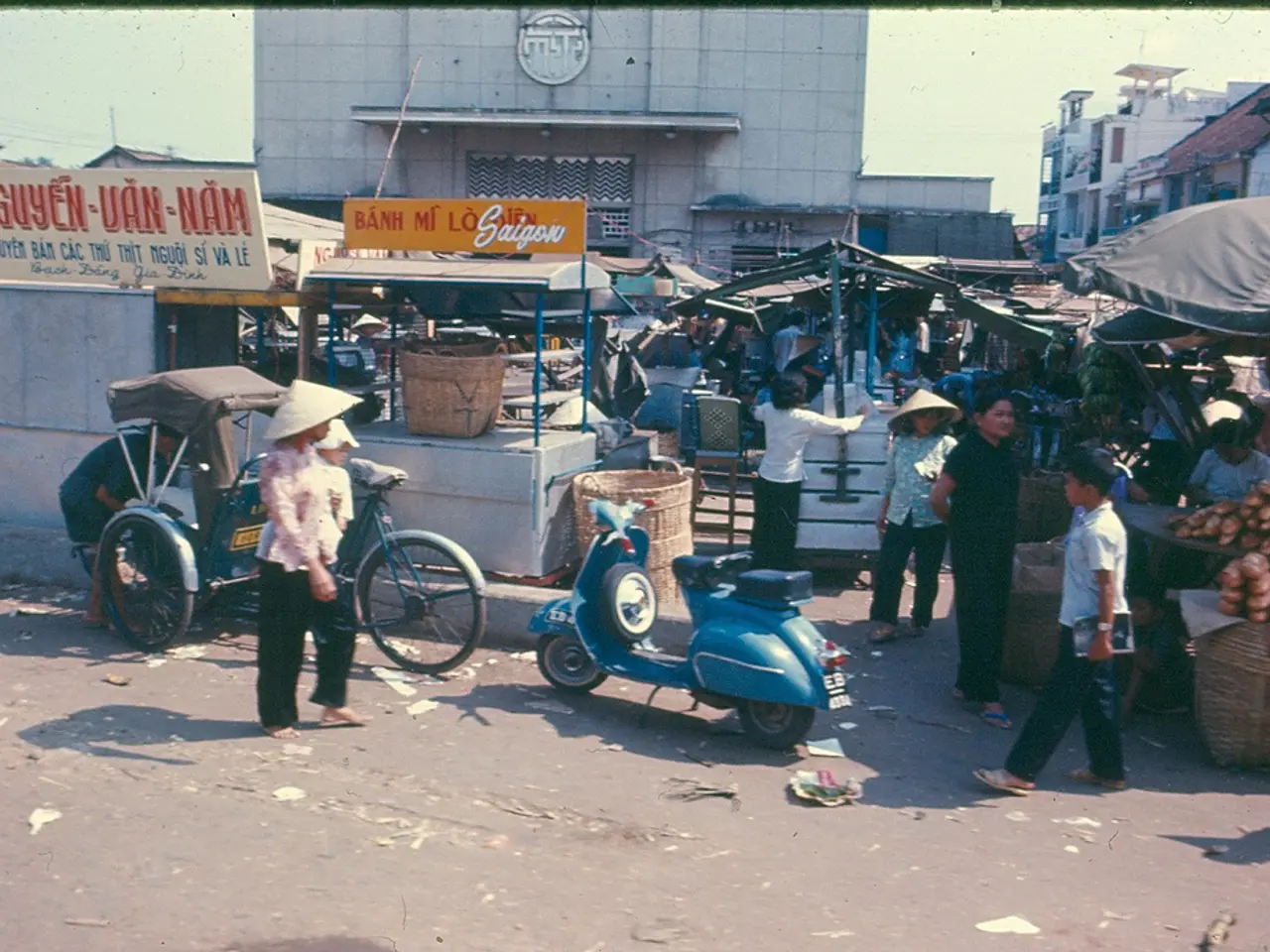Persistent Wait for Decent Housing at Partap and Shaheed Arjun Das Camps in Delhi, Despite Promised Relief
In the heart of Delhi, the Shaheed Arjun Das Camp has been home to its residents for decades. Rinki Gupta, a resident for nearly three decades, is currently facing challenges with her living conditions due to a cracked wall that half-collapsed during last year's rainfall, making her home no longer safe to live in.
The camp, which did not exist four-five years ago according to residents, is one of several slum clusters in Delhi that have been causing concern. The Urban Development Department has asked the Delhi Urban Shelter Improvement Board (DUSIB) to provide details of 82 such slum clusters that have 'disappeared' from the official record.
The growth of these JJ clusters, as they are known, is a result of a "deep structural failure" of planning, according to a report published by the Indian Institute for Human Settlements (IIHS) in 2020. The report suggests that adequate land has not been made available for low-income residents, leading to the expansion of these settlements.
The Draft Master Plan for Delhi-2041 (MPD-2041), prepared by the Delhi Development Authority (DDA) and published in 2021, aims to guide Delhi's development for the next 20 years. The MPD-2041 recommends land pooling, public-private partnerships, and mixed-use development to integrate low-income housing into the city's fabric. It also promotes rental housing, worker accommodation, hostels, and dormitories, especially near mass transit corridors like the Delhi Metro.
However, the MPD-2041 is still awaiting central notification, stalling its implementation as of August 2025. This delay, along with the delayed relocation of residents from Shaheed Arjun Das Camp and other similar camps, is likely due to various factors such as construction delays, legal disputes, administrative bottlenecks, infrastructure or civic amenities delays, and challenges in coordination between multiple government agencies.
Residents of the Shaheed Arjun Camp have been waiting for their promised flats for the last six years. Despite payment for their promised flats, the reasons for the delay are not clear. The government dispensary in the camp is reported to treat residents "like insects," forcing them to seek costly private care.
The edge of a nullah (drain) filled with garbage, black water, and plastic waste is found in the camp, highlighting the poor sanitation conditions in these areas. The camp is located down a narrow path off the polished gate, with small homes packed tightly together with no visible boundaries.
As the city of Delhi continues to grow, it is crucial to address these issues and ensure the integration of low-income housing into the city's fabric, as recommended by the MPD-2041. For updated official information, it is recommended to check with the Delhi Development Authority (DDA), DUSIB, or the local housing authority responsible for Jawaharlal Nehru National Urban Renewal Mission (JNNURM) projects, or access recent government press releases or court orders on this issue.
- The growth of JJ clusters in Delhi, such as the Shaheed Arjun Das Camp, poses issues related to health and wellness due to poor living conditions and sanitation.
- The Indian Institute for Human Settlements' 2020 report identifies the expansion of these slums as a result of a failure in urban planning and a lack of available land for low-income residents.
- The Draft Master Plan for Delhi-2041 (MPD-2041), published in 2021, advocates for land pooling, public-private partnerships, and mixed-use development to integrate low-income housing and improve regional mobility via mass transit systems like the Delhi Metro.
- However, the implementation of the MPD-2041 is delayed, potentially due to various factors like construction delays, legal disputes, administrative bottlenecks, infrastructure or civic amenities delays, and difficulties in coordination between multiple government agencies.
- It's essential to prioritize the resolution of these urban planning challenges, as outlined in the MPD-2041, to forge a sustainable and inclusive future for the city of Delhi, ensuring the well-being of its residents and progress in areas like education, self-development, politics, finance, science, environment, sports, and general news.




